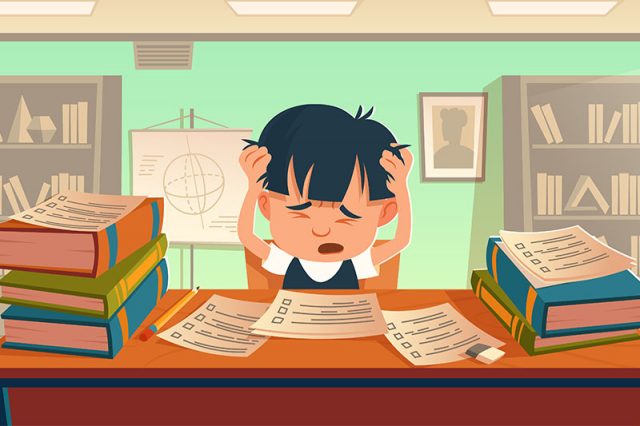Concerns were raised about education after a viral TikTok clip showed a group of young people failing to give correct answers to tense-related questions.
TikTok user @dash_in_sgp recently reposted a video of some youth participating in a “Past Challenge” where they are supposed to give the past tense of a verb within a limited period.
If they get it right, they are rewarded with a cash prize.
However, if they failed to give the correct answer, they needed to have their faces dipped in loose powder in front of them.
“Challenge: Past tense for happy kids,” a text from the video reads.
The clip was a repost from YouTube vlogger Will Gutz, who shared it on his Facebook page on December 2022.
He labeled the video as the 52nd entry of the “Team Kagutz Vlog,” calling it “Past Tense.”
It was also accompanied by the hashtags “#challenge,” “#willgutz” and “#pasttense.”
The clip has gained a whopping number of 48,000 likes and reactions and 15,000 shares on his Facebook page so far.
The young people were initially asked to give the past tense of “say” but many got it wrong.
Some of their answers were “saying,” “will say” and “hello.”
They were also asked to give the past tense of “ring” but some answered “ringed” and “ringing.”
Other verbs that received wrong answers are “lead,” “make,” “visit,” “play,” “dance,” “study,” “go,” “take,” “sit,” “drink” and “hide.”
The old video earned fresh comments after its TikTok repost was shared on Twitter by user @eyaaannnnn on Wednesday.
Among those that expressed concern about the youth’s wrong answers was former senator Sonny Trillanes.
“If there is a basis for unity, this is it. WE NEED TO FIX THIS. No more finger-pointing. DepEd has no more nationally administered diagnostic tools to check the standard of [education] in [different] parts of PH ever since NEAT and NSAT were abolished in 2001. (NEAT & NSAT replaced NCEE in 1994.),” he tweeted.
A University of the Philippines student also found the video “very alarming.”
“Nakakagulat din na most of them, hindi alam ang past tense ng words, or maging ang kahulugan ng past tense. (Ex. One of the kids said that the past tense of play is playing, while say is hello.),” Juan Laurenz Dela Cruz, a former student organization president, said on Facebook.
“Dagdag ko na rin, may ilang high school students akong na-encounter na bukod sa hirap magbasa at mag-spell, ay hindi rin alam kung paano humanap ng nilalaman sa isang libro gamit ang table of contents,” he added.
Some educators, former and current, also have similar sentiments.
“Alarming, sobra. As a grade school teacher na tasked sa education foundation ng learners, this makes me sad. Yet again, education is a two-way street. Learners should also put effort [into] learning. Makinig, magtanong, mag-aral. Facilitators (na lang) kami, basically, they said,” a Twitter user said.
“Alarming but not surprised,” another online user commented.
“I taught grades 9 and 10, and we really had to go back to basic [kasi] ‘di nila alam ang parts of speech. Let’s face it, delayed talaga ang learning ng students sa distance learning [because] of the pandemic,” he added.
‘Learning crisis’
Last year, state think tank Philippine Institute for Development Studies (PIDS) said that the country’s education system struggled to produce high-quality outcomes despite having the same school attendance as wealthier nations.
“The country’s performance in international large-scale assessments confirms we have been in a learning crisis for a while now,” PIDS president Aniceto Orbeta Jr. and distinguished visiting research fellow Vicente Paqueo said in a study before.
“A vast proportion of our students are below minimum proficiency levels in reading, science, and mathematics,” they added.
“While it has been denied that automatic promotion is the official policy, the test results showing a huge proportion of students not having the required competence of the school level they are in is a piece of compelling evidence that this may not be the case,” Orbeta and Paqueo continued.
The authors also attributed the “uneven” quality of higher education in the country to the low quality of basic education.
Previous reports have noted that 90% of children in the Philippines still struggle to read texts at 10 years old.
READ: Crisis in education? Pinoys fret over Philippines’ high learning poverty rate
Last month, Sen. Win Gatchalian said that the Second Congressional Commission on Education (EDCOM II) was ready to evaluate the country’s education system to boost the president’s goals in initiating reforms.
EDCOM II is tasked to evaluate how mandates are observed under the laws that created the Department of Education, the Commission on Higher Education and the Technical Education and Skills Development Authority.
It will then recommend transformative, concrete and targeted reforms to make the country competitive in the education and labor markets.

